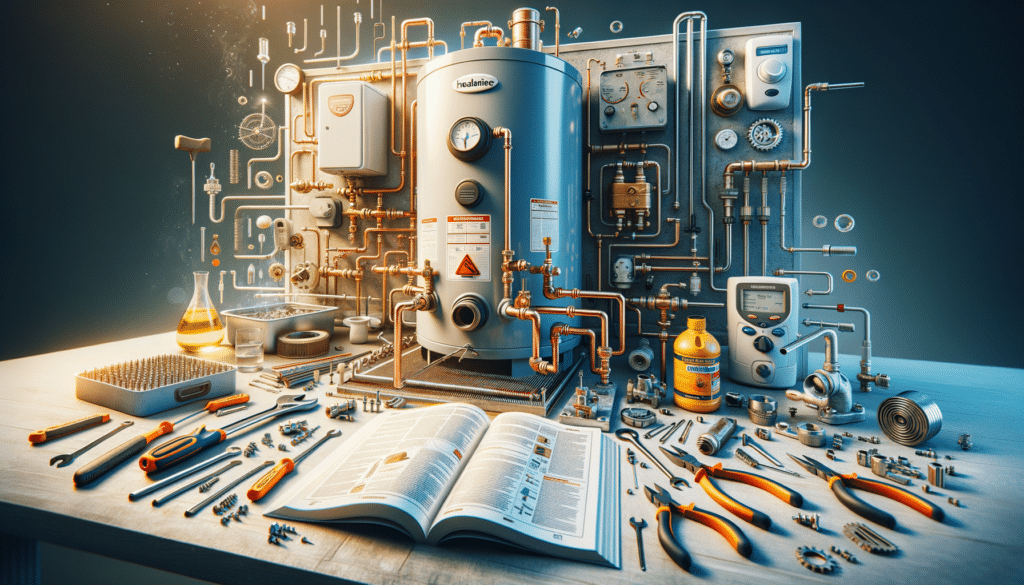Understanding Gas Water Heaters: A Brief Overview
Gas water heaters are a staple in many households due to their efficiency and ability to provide a continuous supply of hot water. These appliances operate by utilizing natural gas or propane to heat water stored in a tank, making them a reliable choice for many. Understanding the basic components and operation of a gas water heater is crucial for effective repair and maintenance. Typically, a gas water heater consists of a tank, a gas burner, a thermostat, and a venting system. The gas burner, located at the bottom of the tank, heats the water, while the thermostat regulates the temperature. The venting system expels combustion gases safely outside the home. Regular maintenance and timely repairs are essential to ensure the longevity and efficiency of your gas water heater.
Common Issues and Troubleshooting Tips
Gas water heaters, like any other appliance, can encounter issues over time. Some of the most common problems include the pilot light going out, insufficient hot water, strange noises, and leaks. Here are some troubleshooting tips for these issues:
- Pilot Light Problems: If the pilot light goes out frequently, it may be due to a faulty thermocouple. Check if the thermocouple is properly aligned with the pilot flame.
- Insufficient Hot Water: This could be due to a malfunctioning thermostat or sediment build-up in the tank. Consider flushing the tank to remove sediment and check the thermostat settings.
- Noises: Rumbling or popping noises often indicate sediment build-up. Regularly flushing the tank can help prevent this issue.
- Leaks: Leaks can occur due to a faulty valve or a corroded tank. Inspect all valves and connections for leaks and replace any faulty components.
Repairing Your Gas Water Heater: Step-by-Step Guide
Repairing a gas water heater can be a straightforward task if approached methodically. Here’s a step-by-step guide to help you through the process:
- Turn Off the Power: Before starting any repair, ensure the gas supply and power to the water heater are turned off to avoid accidents.
- Drain the Tank: Attach a hose to the drain valve and empty the tank to remove any sediment.
- Inspect Components: Check the thermostat, gas valve, and thermocouple for any signs of damage or wear.
- Replace Faulty Parts: If any components are damaged, replace them with new ones to ensure proper functioning.
- Reassemble and Test: Once repairs are complete, reassemble the unit, turn the gas supply back on, and test the water heater to ensure it’s working correctly.
Preventive Maintenance for Longevity
Regular maintenance can significantly extend the life of your gas water heater and improve its efficiency. Here are some preventive measures to consider:
- Annual Inspection: Have a professional inspect your water heater annually to identify and address any potential issues early.
- Flush the Tank: Flushing the tank every six months helps remove sediment build-up, which can affect performance and efficiency.
- Check the Anode Rod: The anode rod helps prevent corrosion. Inspect it annually and replace it if it’s more than 50% worn.
- Test the Pressure Relief Valve: Ensure the pressure relief valve is functioning correctly by testing it once a year to prevent pressure build-up.
When to Call a Professional
While many gas water heater repairs can be done independently, there are times when professional help is necessary. If you encounter any of the following situations, it’s wise to call a professional:
- Complex Repairs: Issues involving the gas line or complex electrical components should be handled by a certified technician to ensure safety.
- Persistent Problems: If problems persist despite your efforts, a professional can diagnose and fix the issue more effectively.
- Warranty Concerns: If your water heater is under warranty, professional repairs may be required to maintain coverage.
By understanding when to seek professional assistance, you can avoid potential hazards and ensure your water heater operates safely and efficiently.





